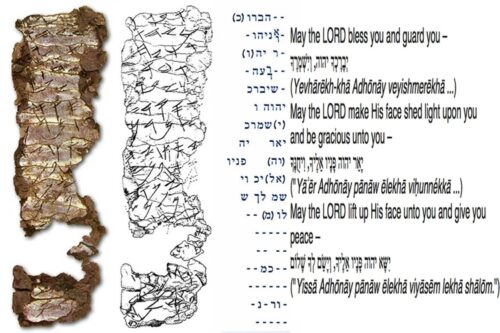How Free is Human Free Will? The Leading Christian Responses
Imagine we’re standing at a crossroads, pondering the paths before us. Each choice represents a different future, and the power to decide seems entirely in our hands. But is it really? The tension between human free will and divine sovereignty has puzzled theologians and philosophers for centuries.
Christians universally affirm that both divine sovereignty and human responsibility are taught in Scripture. We see God working all things according to His will (Ephesians 1:11), yet consistently holding us accountable for our choices. Where Christians differ is in how these truths fit together.
AN ANALOGY FOR HUMAN FREE WILL
Let’s begin with a common analogy for human free will in salvation:
Imagine we’re in a deep well, unable to come out. God throws us a rope and offers to pull us out. But we still need to grab the rope and hold on. This simple picture raises profound questions about the nature of human choice and divine action. How does each Christian tradition respond to this scenario?
THE REFORMED PERSPECTIVE’S RESPONSE
The Reformed tradition would identify several problems with our analogy:
- The analogy suggests the person in the well has the natural ability to grab the rope: Calvinists would argue that in our natural state, we’re not merely unwilling, but unable to respond positively to God’s offer.
- The analogy implies a cooperation model where God does His part (throwing the rope) and we do ours (grabbing it). In Reformed theology‘s view salvation is entirely God’s work from start to finish.
- The analogy portrays the will as neutral or able to make an independent decision—this contradicts Calvinism’s teaching on the bondage of the will
A more accurate Reformed analogy might be:
Imagine we’re not just in a well, but dead at the bottom of it. We need not just a rope, but resurrection. God doesn’t merely offer help—He gives life, creates the desire, and ensures the rescue. Our subsequent actions (including grabbing the rope) flow from this new life given, rather than from our natural abilities.
This revised picture emphasises total human inability apart from God’s regenerating work. We choose Christ precisely because God has first changed our hearts to want Him. As Scripture says, “Even when we were dead in our trespasses, [God] made us alive together with Christ” (Ephesians 2:5).
THE ARMINIAN PERSPECTIVE
Arminians would, likely, be more comfortable with our original analogy. But, chances are, they would modify it significantly, too. In their view, God’s prevenient grace operates universally, enabling all people to respond to His offer of salvation.
The Arminian rewrite of our analogy:
Imagine we’re in the well, completely unable to save ourselves. However, God’s grace has already been at work, awakening us to our condition and enabling us to recognise and respond to His offer. The rope represents Christ’s saving work, but God’s respect for human freedom means He won’t force us to grab it. Our ability to respond comes entirely from God’s grace, though the final decision remains ours.
This preserves both human responsibility and the necessity of God’s grace, while emphasising that God in His love respects human freedom.
THE MOLINIST PERSPECTIVE
Molinists offer a unique solution to the divine sovereignty Vs human freedom puzzle.
Their version of the analogy might be:
Imagine God, in His infinite wisdom, knew before creation every possible circumstance in which we might find ourselves and how we would freely choose in each scenario. He then created the precise world where we would freely choose to grab the rope when offered. The well and our inability to save ourselves are real, but God’s middle knowledge means He orchestrated circumstances knowing exactly how we would freely respond.
This view attempts to preserve both God’s detailed sovereignty and genuine human freedom through God’s comprehensive knowledge of all possibilities.
WHERE THE PERSPECTIVES DIFFER:
The comparative approach using our analogy of the well highlights crucial distinctions in how each tradition understands four fundamental aspects of salvation:
- The Extent of Human Inability: The Reformed view sees every human being as spiritually dead—completely unable to even desire God without regeneration. Arminians view us as severely injured but, through prevenient grace, enabled to respond to God. Molinists emphasise our inability while focusing on how God’s foreknowledge works with genuine human choice.
- The Nature of God’s Grace: The Reformed tradition emphasises irresistible grace—God’s grace effectively accomplishes what He intends. Arminians teach prevenient and resistible grace—God enables all to respond but doesn’t override their will. Molinists describe grace working through God’s perfect orchestration of circumstances that respect human freedom.
- Divine Sovereignty and Human Responsibility: Reformed theology sees God’s sovereignty as establishing genuine human responsibility. Arminians view God as voluntarily limiting His sovereignty to preserve human freedom. Molinists propose that God’s sovereign choice of which world to create perfectly aligns with human free choices
- The Role of Human Will in Salvation: Reformed view: The will chooses according to its nature; regeneration precedes faith. Arminian view: The will, enabled by grace, can freely choose or reject God’s offer. Molinist view: The will makes genuine choices within God’s perfectly orchestrated circumstances
This comparison reveals that while all three traditions affirm both divine sovereignty and human responsibility, they differ significantly in how they understand the relationship between these truths. Each view offers unique insights while wrestling with deep mysteries of how God interacts with human will.
IMPLICATIONS FOR CHRISTIAN LIFE
These differing perspectives profoundly affect how we view:
Prayer and Evangelism
- Reformed: We pray and evangelise because God uses means to accomplish His sovereign purposes
- Arminian: We pray and evangelise knowing God desires all to be saved but respects human choice
- Molinist: We pray and evangelise, confident God has orchestrated circumstances for optimal outcomes
Spiritual Growth
- Reformed: Growth flows from God’s continuing work in believers’ lives
- Arminian: Growth requires cooperative effort between God’s grace and human response
- Molinist: Growth occurs within God’s perfectly orchestrated circumstances
Pastoral Care
Each view offers unique comfort:
- Reformed: God’s sovereignty ensures nothing can thwart His purposes for His people
- Arminian: God’s love respects our personhood while providing everything needed for salvation
- Molinist: God wisely arranges all circumstances for our good while respecting our choices
CONCLUSION
Standing at life’s crossroads, we make real choices that matter deeply. Yet we don’t choose in a vacuum—our decisions flow from who we are and occur within God’s sovereign purpose. While Christians may differ on exactly how divine sovereignty and human responsibility fit together, we unite in affirming both truths.
Perhaps the beauty lies not in fully resolving the mystery, but in embracing both divine sovereignty and human responsibility, while trusting the Almighty who perfectly holds them together.
How Free is Human Free Will?—Related FAQs
Doesn’t God’s sovereignty mean we’re just robots or puppets? None of the Christian traditions teach we’re mere robots. Even in the strongest view of divine sovereignty (Reformed), we make genuine choices flowing from our real desires and character. The difference is in understanding how these choices relate to God’s sovereign purposes.
- If God is sovereign over our choices, how can He hold us responsible? All three traditions maintain that responsibility stems from making voluntary choices, not from having theoretical alternate possibilities. We’re responsible because we act according to our own desires and intentions, even though these choices occur within God’s sovereign plan.
- What about passages that emphasise human choice, like ‘Choose this day whom you will serve’? Such passages demonstrate that we make real choices and are called to respond to God. However, the deeper question is not whether we choose (we do), but what enables and influences those choices—our natural abilities, God’s enabling grace, or a combination of factors.
Does prayer change anything if God is sovereign? Yes, prayer makes a real difference because God ordinarily works through means, including our prayers. He has ordained not only the ends but also the means to those ends, making our prayers genuine instruments in accomplishing His purposes.
- If we can’t choose God without His grace, is God unfair to those who don’t receive it? This question receives different answers from each tradition. Reformed theologians emphasise that God owes grace to none and is just in all His dealings, while Arminians argue God gives sufficient grace to all. Molinists, on the other hand, suggest God has orchestrated circumstances optimally for each person’s free response.
- What’s the practical difference between these views for everyday Christian life? The practical differences emerge in how we understand spiritual growth, evangelism, and pastoral care. Reformed believers emphasise dependence on God’s grace, Arminians stress responsible cooperation with grace, and Molinists focus on God’s wise orchestration of circumstances for our growth.
Does it really matter which view we hold? While Christians can and do disagree on this issue while maintaining genuine, loving fellowship, our understanding of free will affects how we view God’s character, approach spiritual disciplines, and counsel others. However, all orthodox Christian views agree we should both trust in God’s sovereignty and live responsibly before Him.
How Free is Human Free Will?—Our Related Posts
Editor’s Pick

Is ‘Gay Christian’ a Biblically Acceptable Identity to Have?
THE QUESTION OF IDENTITY IN BIBLICAL PERSPECTIVE The term “gay Christian” has become increasingly common in contemporary religious discourse, representing [...]
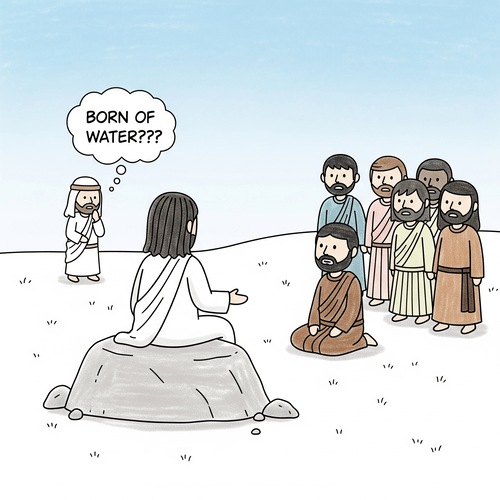
What Does ‘Born of Water’ in John 3:5 Mean?
THE REFORMED VIEW VS OTHER INTERPRETATIONS ”Jesus answered, ‘Truly, truly, I say to you, unless one is born of water [...]
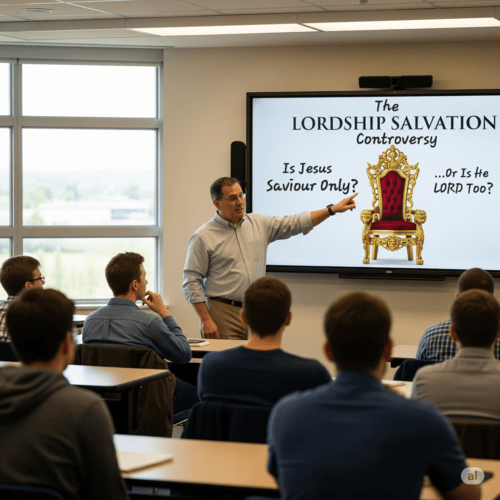
The Lordship Salvation Controversy: What’s It All About?
Can someone be truly saved without making Jesus Christ their Lord? The question sits at the heart of one of [...]
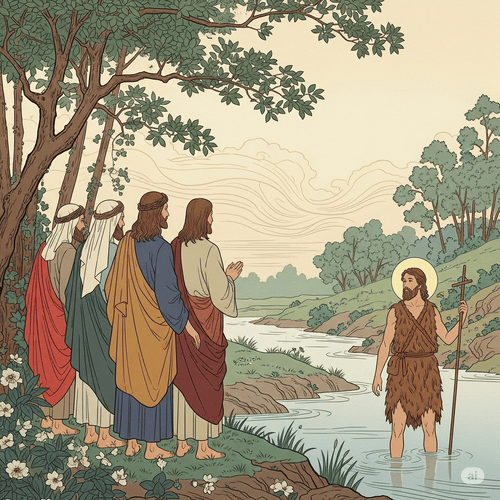
1 John 5:6: How Do Water and Blood Reveal Jesus’ True Identity?
"This is he who came by water and blood—Jesus Christ; not by the water only but by the water and [...]
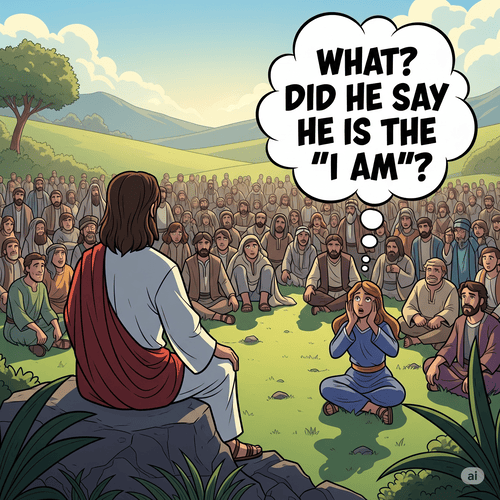
Is Jesus Yahweh? Answering Unitarian Objections
The question of whether Jesus Christ is truly God has divided Christians for centuries. While orthodox Christianity has consistently affirmed [...]
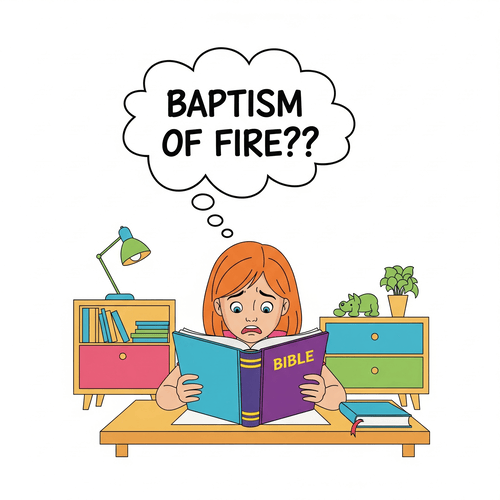
Matthew 3:11: What Is the Baptism of Fire?
When John the Baptist declared, “He will baptise you with the Holy Spirit and fire” (Matthew 3:11), his words carried [...]

From Rock to Stumbling Block: Why Jesus Called Peter Satan
In the span of just six verses (Matthew 16:13-28), Peter goes from receiving the highest praise from Jesus to getting [...]

Can Repentance be Real If We Struggle With Habitual Sin?
We’ve been there before. The weight of conviction sinks in as we realise we’ve fallen into the same sin. All [...]
The Ketef Hinnom Scrolls: An Accidental Yet Phenomenal Find
SMALLER THAN OUR PALM, OLDER THAN THE DEAD SEA SCROLLS In 1979, a bored 13-year-old volunteer at an archaeological dig [...]

Caught in Adultery: How Reliable Is the John 8 Story?
"Let him who is without sin cast the first stone." Few Bible scenes capture Jesus' wisdom and grace quite like [...]


